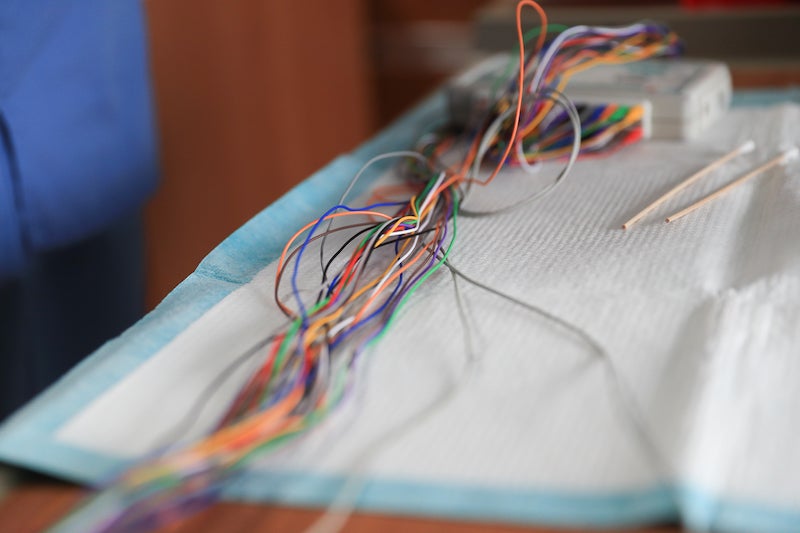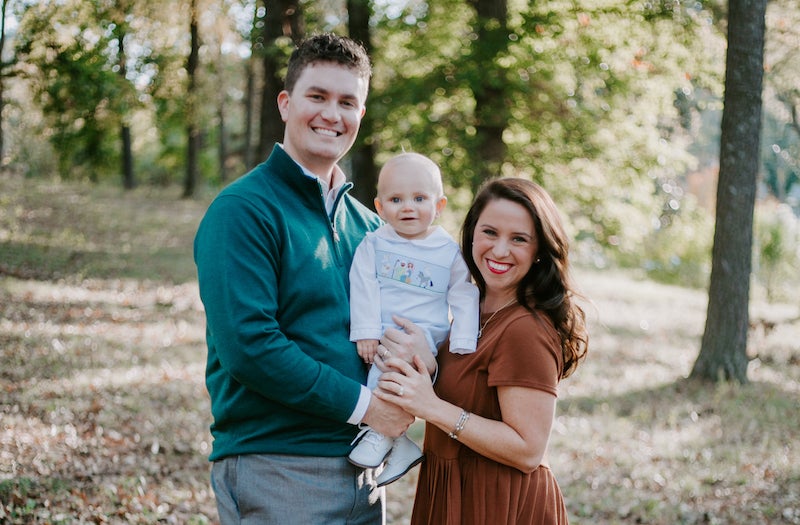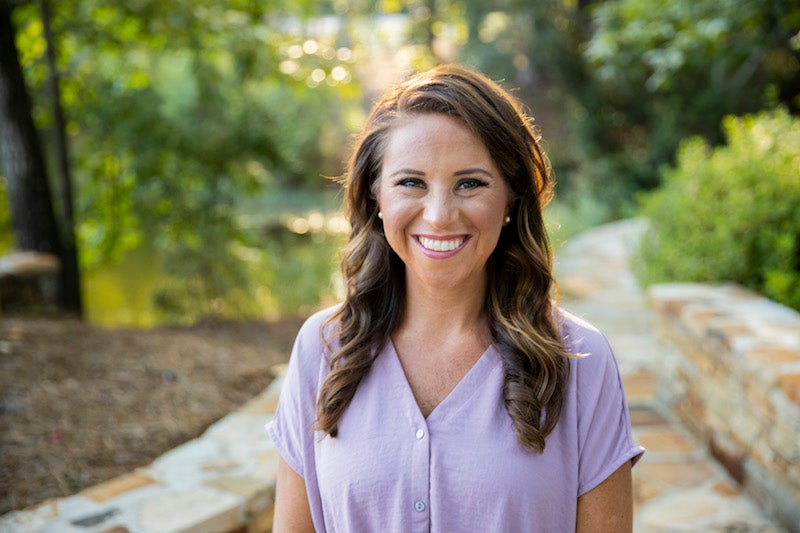What started as a health setback for Sara Franklin has become a way for her to help others dealing with epilepsy.
It is the middle of the night on August 25, 2018, and Sara Franklin opens her eyes to see her husband standing over her and the room packed with emergency medical personnel and firemen. “You have had a seizure, and we are taking you to the hospital,” Sara’s husband, Drew, calmly tells her. The seizure Sara experienced was the onset of epilepsy. The tonic-clonic seizure, or “grand mal” seizure, changed the path of her life and career, but not her faith.
Following a number of tests with a neurologist a few weeks after the first seizure, doctors were unable to find a root cause. “This was a bit of a setback to life,” Sara admits. “It is against state law for anyone to drive for six months after any type of seizure activity.”
A native of Hoover, Sara has nearly a decade of public and community relations experience. In the field of public relations, where a standard 9-to-5 day is not really the norm, the new mom of a six-month-old baby—and a working mom at that—was determined to press forward with family life and work while trying to keep everything balanced. All of this while watching her health and trying to find a cause for her seizure. But in November, Sara suffered additional seizures.

TOP AND ABOVE PHOTOS: A technician measures Sara’s head and marks her scalp with a special pencil to indicate where to attach the electrodes for an EEG.
According to the Centers for Disease Control and Prevention, more than 54,000 people are affected by epilepsy and seizures in the state of Alabama. One in 10 people will have a seizure at some point during their lifetime. One in 26 people will have epilepsy. “I was diagnosed with epilepsy in November after having the additional complex partial seizures. Recurring seizures is when someone is diagnosed with epilepsy,” Sara explains. Epilepsy is a spectrum condition with a wide range of seizure types and control varying from person to person. It is also the fourth most common neurological disorder and affects people of all ages.

Sara Franklin, right, had her first seizure in August 2018 and was diagnosed with epilepsy two months later.
A major health event can shake the very foundation of a person’s life. “Before my seizures, I was convinced that I was working in a role that I would be working in for the long haul, but it was clear and necessary that I step away from work for the time being,” Sara says. It was a difficult decision, no doubt, but Sara says she wanted to take time for doctors to evaluate her onset of seizures and find a potential solution. “One of my former professors encouraged me to stay involved with local professional organizations during this time away, and reminded me that life was not ‘over forever,’ and that was some of the most encouraging advice I received during this time.”
If the onset of a neurological condition were not enough for the Franklins to go through, Drew, who Sara describes as a typically healthy person, returned from a work trip feeling unwell. He started experiencing numbness in his arms that was moving into his face. He also had excruciating headaches. Six ER visits later, a sinus surgery and two hospital ICU stays, it was determined that Drew had a brain infection that also caused brain swelling due to a sinus infection that had leaked into his skull – a very rare occurrence, but possible. With both facing health challenges that were life-threatening, Sara says her faith kept her strong with the support of her family and friends. “One thing that resonates with our family as we look on this past year and a half is how thankful we are for our family, our close friends, and especially our local church family,” Sara says. “Our Sunday school class, church staff, and even people we didn’t know personally were reaching out to us and praying for us.”

Sara describes her journey from her epilepsy diagnosis to landing the role of executive director of the Epilepsy Foundation of Alabama as “a tragedy turned into an opportunity.”
Sara says it’s about recognizing the fact that you aren’t promised an easy life even if you are a follower of Jesus. “We can all turn our pain into purpose,” she says. “We are here to glorify God for the number of days we are here, and to point others toward him. He is the one that provides peace, no matter our circumstances. We hope to use this experience from our past year and a half to point others to Jesus Christ.”
As the Franklins were on the road to recovery, Sara began attending professional development meetings when she could and talked about her epilepsy. She found a common bond with an acquaintance that was serving as chair of the Epilepsy Foundation of Alabama board. Later, when the foundation was looking for a new executive director in Alabama, Sara was encouraged to apply. “Fast forward a few months, and I got the job offer,” Sara recalls. “I couldn’t believe that what I once saw as a tragedy turned into an opportunity to walk with others and encourage them through their own journeys of epilepsy. There are more than 54,000 people with epilepsy living in our state, many of them below the poverty line, and I want to walk alongside them as they seek to end seizures in their own lives.”
The Epilepsy Foundation of Alabama was founded in 1971 as an affiliate of the Epilepsy Foundation of America and is now an official chapter of the national organization. Alabama’s chapter recently moved to Hoover and serves the entire state. “The Foundation is leading the fight to END EPILEPSY® in Alabama by connecting people to treatment, support and resources,” Sara says. The Epilepsy Foundation of Alabama, a chapter of the national organization is located in Hoover.
One of Sara’s first projects as executive director was coordinating the Walk to END EPILEPSY® in Birmingham on November 2 at Railroad Park. “This was our only statewide Walk to End Epilepsy in Alabama for 2019, but we hope to have more walks in cities across the state in the coming years,” Sara says. Around 800 people attended the November walk and brought in $67,000 in donations. “We are excited about the momentum that is building with our turnout and the addition of corporate sponsors that we were able to add this year.” “Building relationships with the corporate and private community is something that I look forward to as director.”
Nationally, the Foundation is working with companies like Uber and hoping to provide discounted rates for people with epilepsy to help with the periods of time that seizure patients cannot drive. “I have found that a lot of people with epilepsy struggle with the feeling of being a hassle rather than a help when it comes to employment, struggling with how to navigate and make a living, and having a career with epilepsy.” Sara says her goal is to help people going through those struggles and link them to information, services and referrals that can help them in their everyday lives.
Looking back over her life over the last year, Sara counts many blessings from family and friends—and also a newfound way of helping people. “It’s neat to watch the Lord’s whispers and confirmation of his plan,” Sara says.










